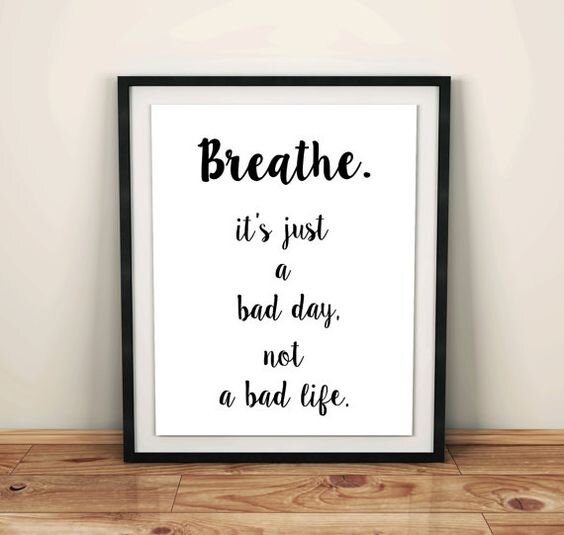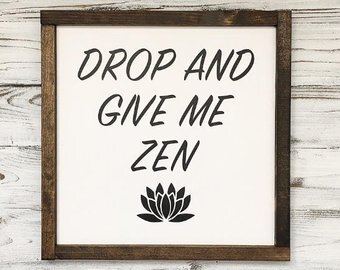How to stay Zen
The stresses we are faced with on a daily basis can really play havoc with our mental health…pressured, fast-paced jobs, children, family, health concerns, the increasing pressure to be ‘doing it all’, to be successful, the perfect woman, wife, friend, mother. It’s so easy to get caught up in it all and sometimes this can lead us into a downward spiral.
It’s important to share our stories, whether they are positive or negative. Break the stigma around openly talking about our experiences for fear of being judged, or not accepted. At the end of the day, we are all trying our best and by supporting each other as best we can, we can make changes.
This blog is sharing some of ZenMuma founder Jackie’s experiences in her life that led her on her journey to inspire and support other women to “stay zen”. As a mother herself, and a business woman, she’s experienced first hand the challenges that life can throw at us, but she’s taken that and turned it into something positive. She also shares some ways to ‘be more zen’ through yoga and meditation.
Jackie speaks on life following the death of her Father-in-law in the early summer of 2017:
“Over my lifetime I have had periods of anxiety and insomnia. These can be from over demanding things of myself, a fear of getting things wrong, stress from high powered executive jobs, or bouts of post-natal confusion. Over the years I have found yoga, mindfulness and meditation to save me. It’s my therapy. It’s my mental fitness as well as my physical fitness of choice. During the summer the only way yoga helped is reminding me that I am allowed to have these feelings, and to accept and be in these emotions without judgement. Then slowly in September things started to change, they had to. I (we) stopped drinking, eating meat, I started a new business called ZenMuma, doing something that inspired me – teaching other women how to teach the specialised yoga and Hypnobirthing which I had so loved teaching over the last decade, and my yoga practise slowly started to come back. I began to allow myself space again to breathe, and be still, and then to move my tired body in a way where it started to once again feel more alive.”
“If your mind is not at peace, you cannot find it anywhere else in the
world.” - Debasish Mridha
Stay Zen
Most of us find a way to cope with the struggles, complexities, and confusions of life, but that doesn’t mean we are happy coping, some days we feel like we can just about ‘get through’. It’s probably fair to say that we all want to lead happier, more content, more fulfilled lives and that some inner peace is favourable to eternal worry, distress, and anxiety. So how do you stay zen?
The first step is to appreciate that we all feel stress. Our boss, our fitness teacher, our family doctor, the most together mum at the school gate. It’s a fact that the human brain is eternally wired to look for problems – it’s the fight, flight and fright part of our survival mechanism that is always looking for the next threat. It’s how we respond to that threat which becomes important.
Pioneering endocrinologist Dr Hans Selye, who studies and researches biological stress states “it is not stress that kills us, it is our reaction to it”.
So how can we stay zen when all around us is spiralling out of control?
Lots of people think that they can’t meditate because they can’t sit still, and they can’t ‘think of nothing’. Well in fact, meditation is not about thinking nothing, not immediately anyway. It takes years of meditation practise to get to that, indeed if we ever do. As my wise yoga swami said to me “just as you can’t stop the heart beating, so you can’t stop the mind thinking”. When we are looking at happiness it’s how we react to those thoughts, that’s the important bit. We all think, all the time, a million different thoughts a day, often flitting from one voice to the other, one opinion to the next. Thoughts often pull our emotions around, or indeed vice versa. Meditation is about calming the thoughts, making peace with them, befriending them even, so they don’t cause you distress anymore, then maybe we can learn to get some real inner peace. There are lots of different forms of meditation, for whatever your needs are on the day, but to understand what those needs are you need to understand yourself, so the first steps to meditation are…
i/ Meditate and notice when you get distracted, and what those distractions are. Do your best not to judge them, just notice them.
ii/ Be aware of how the distractions, or thoughts, which are sometimes functional and often emotional, draw our awareness. Now we begin to place awareness on the thoughts, wind them back, see where they came from. Once we begin to understand this, we begin to understand ourselves. Once we begin to understand ourselves we begin to be aware of our needs, and can start to be more kind to ourselves, once we begin to be more kind to ourselves we can begin to be happier
iii/ Once we begin to be happier we are more content to be still and happy in our own space. It is this stillness of body and mind, whilst sitting in a content and mindful space, that can lead to a more fulfilled and happy mind, and perhaps more importantly heart. This leads to inner peace. Maybe even one day bliss…
“You yourself, as much as anybody in the entire universe, deserve your
love and affection." -Buddha
2. Mindfulness is another way of experiencing a moment of bliss, or a moment of being. First, just consider how many times in your day you are in the present moment. What does that mean? Well take a moment away from this blog right now and think about how often during your day you think about the future or the past, i.e. what’s coming up next, or all the things you have done. As opposed to ‘right now’. (I’m pausing while you think).
Probably not very often, unless you are already practising mindfulness of course.
When our brain is continuously processing future, or past knowledge, it is busy. And most people if you ask them will say their brain is too busy! It’s a fact that these busy thoughts usually involve not just the processing of the actual thing that happened, but all of the reactions to it, not just ours, but the reactions of how other people viewed that act, or what other people would have thought about it, and these thoughts are often critical, rather than kind. So, we can be led quite easily down negative thinking, unless we learn how to stop it for a while, and just, well, be in the moment. Mindfulness is a way of quietening the noise and appreciating a moment for what it is: the taste of a piece of cake, or the avocado we have in our mouth, the look of the way the sun is glistening on a lake, or a puddle, the sound of the music on the radio, or birdsong outside. Taking notice. Drawing our attention to something not bound in ‘right and wrongs’, just ‘isness’. And, this usually involves positive thought, an appreciation of the way something is, or looks, smells, or tastes or feels, and this positive thought gives us a little burst of feel-good, or happy hormones like endorphins, serotonin, dopamine, oxytocin. Happiness is largely a chemical experience, as these feel good hormones activate the parasympathetic nervous system which carries with it good health to all of our bodily systems, the endocrine system, circulatory, digestive… therefore mindfulness it’s not just good for your mental health, its good for your physical health too! Try it today… from now… just pause and listen and look at something around you and appreciate being alive and being able to do be in it… this, is, a moment of bliss.
3. Ok, so without getting too ‘neurosciencey’, alpha brain and theta brain are the brainwaves we swim around in when we are in a calm relaxed state of mind. Getting yourself into these brainwave flows help our body stay in that all-important para-sympathetic nervous system, where those feel-good happy hormones hang-out. So, doing alpha, or theta brain activities are great for mental health. These are activities when you get into the mindfulness of the present moment through doing something you love, like listening to an orchestra, or a rock band, like playing tennis or doing some yoga, like reading a fictional book or watching an uplifting film, baking, singing, making a pot from clay, painting your skirting board, these are all alpha flow activities and are a good way to stay focused on your zen.
4. Relax your jaw. Lots of people hold lots of tension in the jaw, some people grind their teeth, some people bite their cheek. Thoughts are directly involved in jaw movement, when we think, we think in words, even though we don’t say those words we are still saying them in our mind and our jaw still moves, albeit in a smaller micro-movement kind of way, but it still moves, constantly. So, relax your jaw, you will find, once you practise, it will also help to relax your brain!
5. Breathe and relax your muscles… Yes, lots of people like me say this, but we say it for a reason. When we are stressed and in the natural ‘fight, flight or fright’ survival response, we breathe faster, with a shallower breath. This is because the adrenaline we are experiencing is pumping the blood through the heart and around the body faster, so we can deal with the potential threat. Modern threat examples… perhaps the fact that we are in a traffic jam and late for a meeting, being called into our boss’s office, feeling like we have lost control of our children. The reason the blood needs to be pumped faster is, so we can fight, flight or fright, attack the problem, run away from it, or hide from it. This is the physical way that the body copes with all issues, it’s why our bodies feel so tense when we are stressed. So, what can we do? take control and breathe. When we learn specific deep breathing and relaxation techniques we are instructing the lungs to slow down, stop shallow (panic) breathing, take bigger breaths, which then send a message to the brain that everything is OK – then we get that para-sympathetic nervous system kick back in and our good hormones start to roll. Likewise, when we totally relax our muscles the body knows it is not in an active state and therefore cannot be under threat (running away, fighting or hiding) and here we go… ahhhhh happy hormones flow.
“Anxiety, the illness of our time, comes primarily from our inability to
live in the present moment.” - Thich Nhat Hanh





